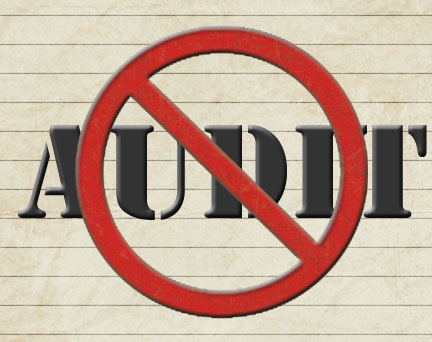The audit exercise done by the Service Tax Department has gone through the judicial scanner second time within a short time span. The author remembers its article published in the very same Newsletter Volume VIII, Issue 1, February-March 2014 wherein the judgment rendered by the Hon’ble Allahabad High Court on the powers of the departmental officers to conduct Service Tax audit was discussed.
The Hon’ble Court in case of M/s A.C.L. Education Centre (P) Ltd. & Others V/s. Union Of India Thr. Secy. Deptt. Of Revenue, New Delhi & Others [WP No. 11954/MB/2013] held that that the power to conduct the audit is vested with the Chartered/Cost Accountants under Section 72A of the Act and the officer may collect the material and documents required for this purpose, but cannot undertake the audit. Subject to these observations, the validity of Rule 5A (2) of the Service Tax Rules, 1994, was upheld. According to this ruling, the audit can be conducted by Chartered/Cost Accountants but not by tax officers.
This judgment was delivered in the month of December’2013. It is almost 8 months are over and once again the issue has come before the Hon’ble Delhi High Court in a separate case of Travelite (India) vs Union of India and Others W.P.(C) 3774/2013 (Delhi High Court) wherein the validity of Rule 5A of the Service Tax Rules, 1994, was again challenged. The author through this article is once again trying to throw light on the subject matter in the light of recent judgment of Delhi High Court.
Facts of the case:
In the instant case the assessee petitioner is a registered service tax assessee. The Petitioner received a letter from the Commissioner of Service tax dated November 7, 2012 which sought its records for the years 2007-08 to 2011-12 for scrutiny by an audit party under Rule 5A(2) of the Service Tax Rules, 1994. The Petitioner being aggrieved by the Letter filed a writ petition before the Hon’ble High Court of Delhi challenging the validity of Rule 5A (2) of the Service Tax Rules brought into force vide Notification No. 45/2007-ST dated December 28, 2007 as well as the CBEC Instruction F. No. 137/26/2007-CX.4 dated January 1, 2008.
Position of Law:
The author in its last article published in the Guwahati @ Icai (E-Newsletter Volume VIII, Issue 1, February-March 2014) has categorically discussed the undernoted statutory provisions.
- Rule 5A of Service Tax Rules ,2004- Access to registered premises
- Section 83 of Finance Act,1994- Section 14AA of Central Excise Act made applicable to service tax & CBEC Instruction F. No. 137/26/2007-CX.4 dated January 1, 2008 made applicable
- Section 72A of the Finance Act,1994- Provision of Special Audit by Commissioner
- Section 94 of the Finance Act,1994- Power of Central Govt. to make rules
Thus for the sake of brevity the same are not being repeated here. So one can refer the earlier article published as mentioned above.
Contention of the Petitioner:
The Petitioner contended that an assessing officer can call for records in respect of any period during which the Department seeks to intensively scrutinize receipts, etc., i.e. under a Special Audit under Section 72A of the Finance Act. It was further argued by the Petitioner that the Finance Act does not contain any substantive power to call for records for scrutiny as is permissible under Rule 5A(2) of the Service Tax Rules or for the purpose of scrutiny by any authority outside of those created under the Finance Act, such as the Comptroller and Auditor General’s office.
Furthermore, the Petitioner submitted that the Rule 5A(2) of the Service Tax Rules is not within the rule making power conferred under Section 94 of the Finance Act and is squarely inconsistent with Section 72A of the Finance Act. Reliance was placed on Municipal Corporation v. Birla Cotton, Spinning and Weaving Mills, AIR 1968 SC 1232 and General Officer, Commanding in Chief v. Subhash Chandra Yadav, (1988) 2 SCC 351. Moreover, the handing over of records to an audit party cannot be governed by a non-statutory instrument like the Service Tax Audit Manual. The Petitioner also challenged the Instruction issued by CBEC on 01.01.2008.
The Petitioner also placed reliance on Sahara India v. CIT (2008) 14 SCC 151 that in any event, an audit, since it carries civil consequences, cannot be ordered without a notice issued to the assessee, indicating reasons for the audit.
Contention of the Department:
The Revenue argued that Rule 5A of the Service Tax Rules was made pursuant to the power conferred under Section 94 of the Finance Act and not pursuant to Section 72A of the Finance Act. Further, the Revenue also contended that the Rule is also justified by invoking the provisions of Service Tax Audit Manual as the basis for ordering an audit.
Findings & Judgment:
Rule 5A(2) of the Service tax Rules is ultra vires the provisions of the Finance Act:
The Hon’ble Court held that Rules only give effect to statute’s provisions and intent and cannot be used to create substantive rights, obligations or liabilities that are not within the contemplation of the statute. Further, the only audit within the Statute is as mentioned under Section 72A of the Finance Act, i.e. a Special Audit, when only certain circumstances are fulfilled. The Parliament thus had a clear intention to provide for only a special audit. Accordingly, Rule 5A(2) of the Service Tax Rules cannot provide for a general audit of the assessee and is ultra vires the rule making power conferred under Section 94(1) of the Finance Act. The Court held that:
“ This Court is thus of the opinion that any attempt to include provision for such a General audit through the back-door, such as through the impugned rule, is ultra-vires the rule making power conferred under Section 94(1). Rule 5A(2) must consequently be struck down.”
Further, the Hon’ble Delhi High Court also held that the Service Tax Audit Manual is merely an instrument of instructions for the service tax authorities and do not have any statutory force. Therefore, Rule 5A(2) of the Service Tax Rules cannot be justified on the basis of the Service Tax Audit Manual.
The Instruction regarding Audit by Department is contrary to the Statue:
Further, it was held that the Instruction is also ultra vires the Finance Act since executive instructions without statutory force cannot override the law. Consequently, any notice, circular, guideline etc., contrary to statutory laws cannot be enforced since the parent statute in this regard, the Finance Act itself does not authorize a general audit of the type envisioned by the impugned Rule 5A(2) of the Service Tax Rules, and furthermore only stipulates that a Special Audit can be undertaken if the circumstances outlined in Section 72A of the Finance Act are fulfilled. The Hon’ble High Delhi Court finds that the Instruction is not only an attempt to widen the scope of the law impermissibly but also is patently contrary to the Statute. The Instruction, to the extent it provides clarifications on Rule 5A(2) of the Service Tax Rules, pertaining to Service Tax audit, is quashed.
The above findings of Hon’ble Delhi High Court can be summarized as follows:
- Audit could be conducted only in specified circumstances such as if there is reason to believe that tax has not been paid appropriately, wrong credit has been availed and utilized, there are chances of fraud, etc. as specified under Section 72A of the Finance Act.
- There is no provision extending the power for a general audit that every assessee may be subjected to on demand.
- Power stipulated under Rule 5A(2) of Service Tax Rules, 1994, along with the Central Board of Excise and Customs’ (CBEC) instructions, to access the premises of the assessee and review documents cannot override the Act. Rules or instructions cannot be issued in contravention of the statutory provisions.
- Accordingly, as there is no power for conducting such an audit under the Service Tax Act, the High Court held that a service tax audit cannot be undertaken by the tax authorities.
Author’s Comments:
The above judgment, on the one hand has given a great relief to the assessee whereas on the other hand it put CBEC in a serious thought process. The first and foremost concern of the revenue will be to decide whether to go for further appeal before the Higher forum against it or to think for bringing retrospective legislation to validate rule 5A(2)? Further this judgment is also a great set back on the part of the revenue especially when the CBEC is planning to establish a separate Service Tax Audit Commissionerate. In the Cadre restructuring CBEC has proposed 45 Commissionerate exclusively for Audit. Now in absence of powers to do audit, what will happen to these Commissionerate and about 10,000 personnel who are to be appointed at these Commissionerate?
At the same time there is some confusion going on amongst the assessee about the applicability of this judgment particularly in the places outside the jurisdiction of Delhi High Court. The author also apprehends the applicability of Delhi High Court judgment in other territories of the Country. There are two reasons behind the same. Firstly, on a close examination of both the judgments it is clear that the Allahabad High Court has not struck down the rule 5A (2) rather upheld the same with a limited interpretation thereof. On the other hand the Delhi High Court has struck down the rule 5A (2) itself. Thus two different Courts have taken separate view on the constitutional validity of the same subject matter. Thus for more clarity, the matter needs to be referred to larger Bench or Higher forum. Secondly, it is a settled position that the decision of a particular High Court should certainly be followed by all authorities within the territorial jurisdiction of that High Court. The authorities in another state are of course not bound to follow the view taken by a particular High Court in the absence of a decision by the jurisdictional High Court.
At the same time one may argue that since rule 5A (2) is considered as ultra-vires and is struck down so this judgment should have force throughout country as statutory rule was under challenge & same is struck down. Further the Finance Act, 2004 and the rules made there under are a piece of Central legislation. So if the provisions thereof is/are considered as ultra –vires then it should have been applicable to the whole Country.
So in author’s opinion the applicability of Delhi High Court judgment is restricted to the territorial jurisdiction of Delhi only. For more clarity on the matter let us wait and watch what action CBEC is going to take on this issue and then only it is advisable to act accordingly.
*The author is a practicing chartered accountant at Guwahati and can be reached at: manoj_nahata2003@yahoo.co.in



